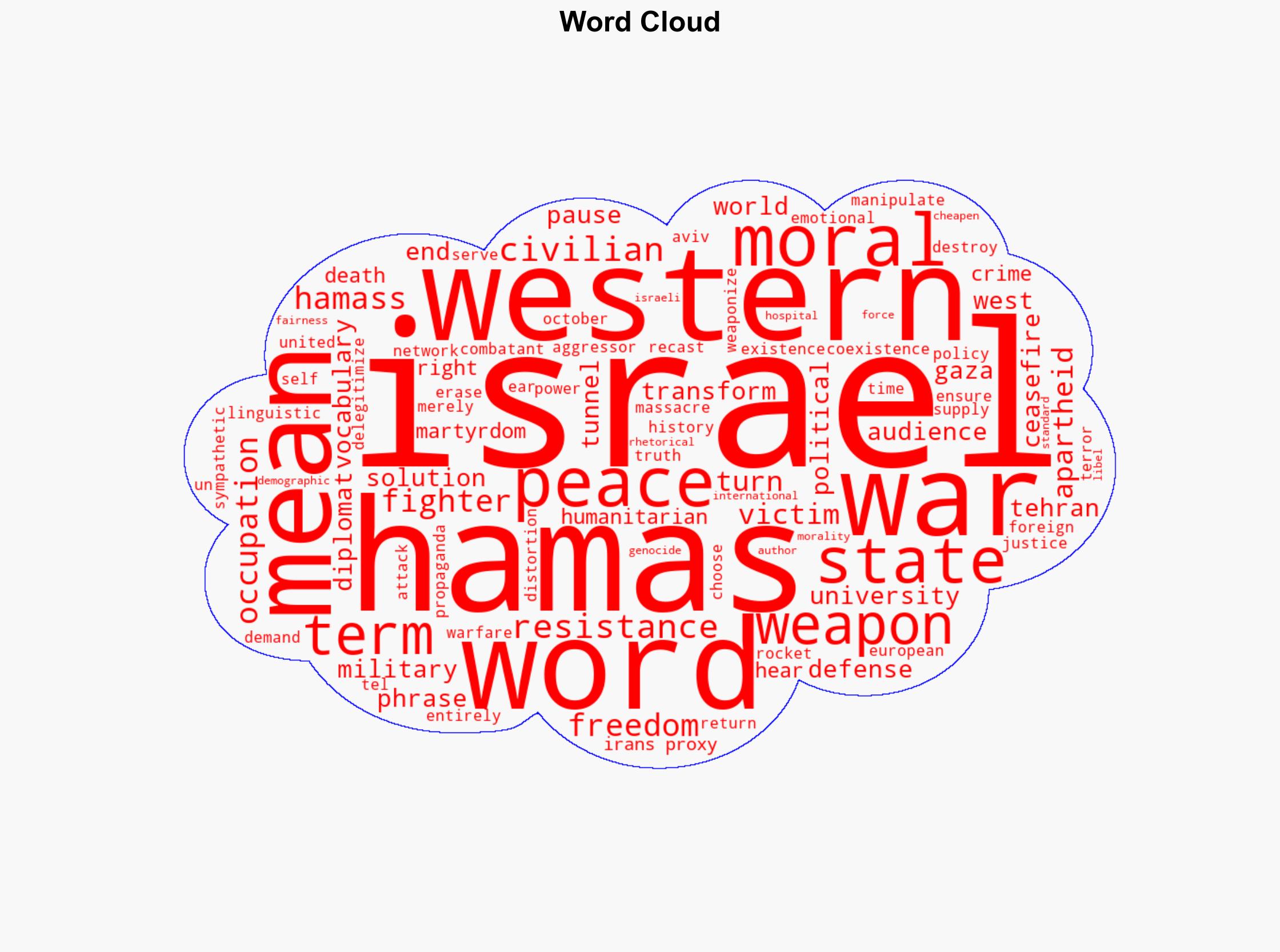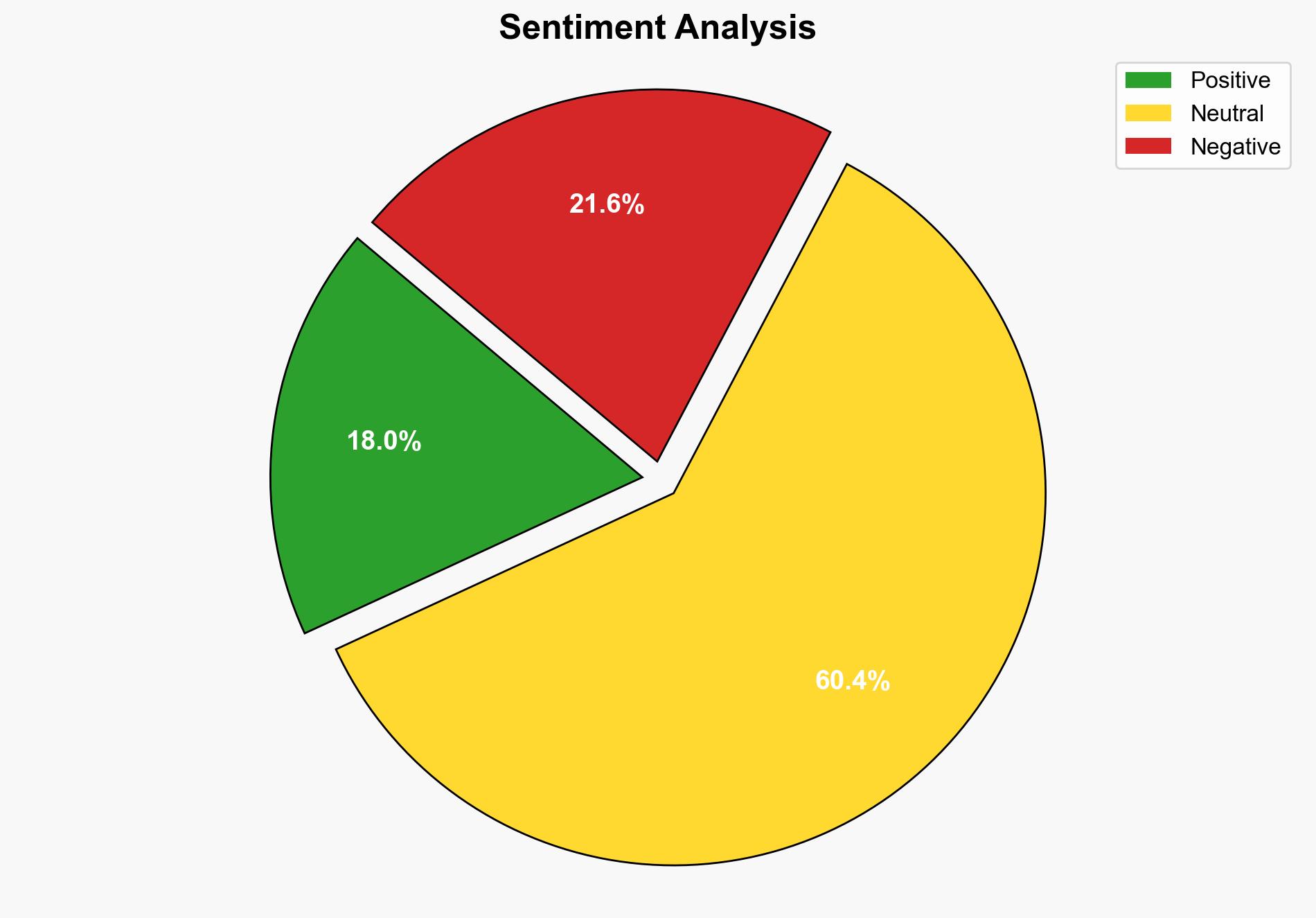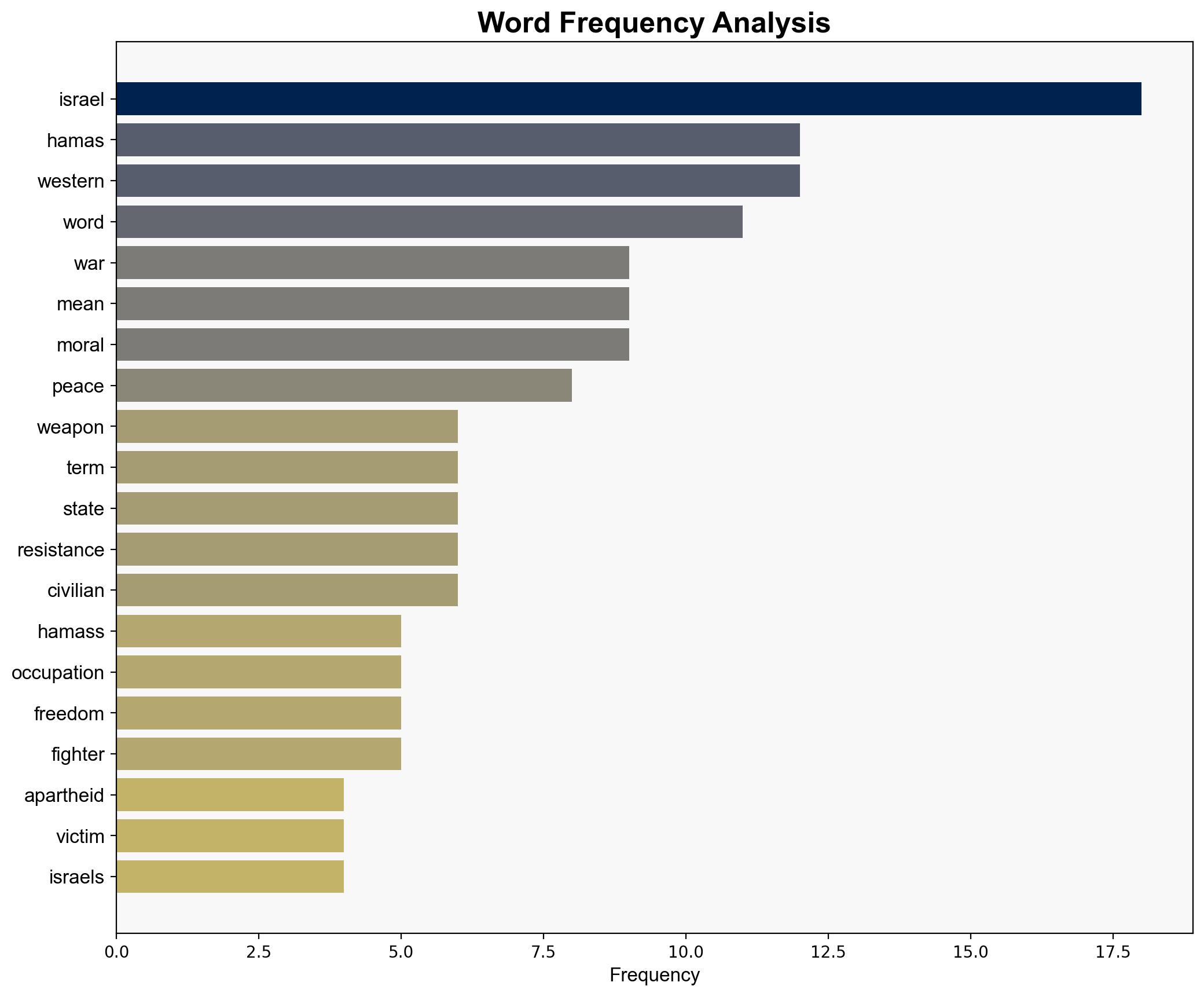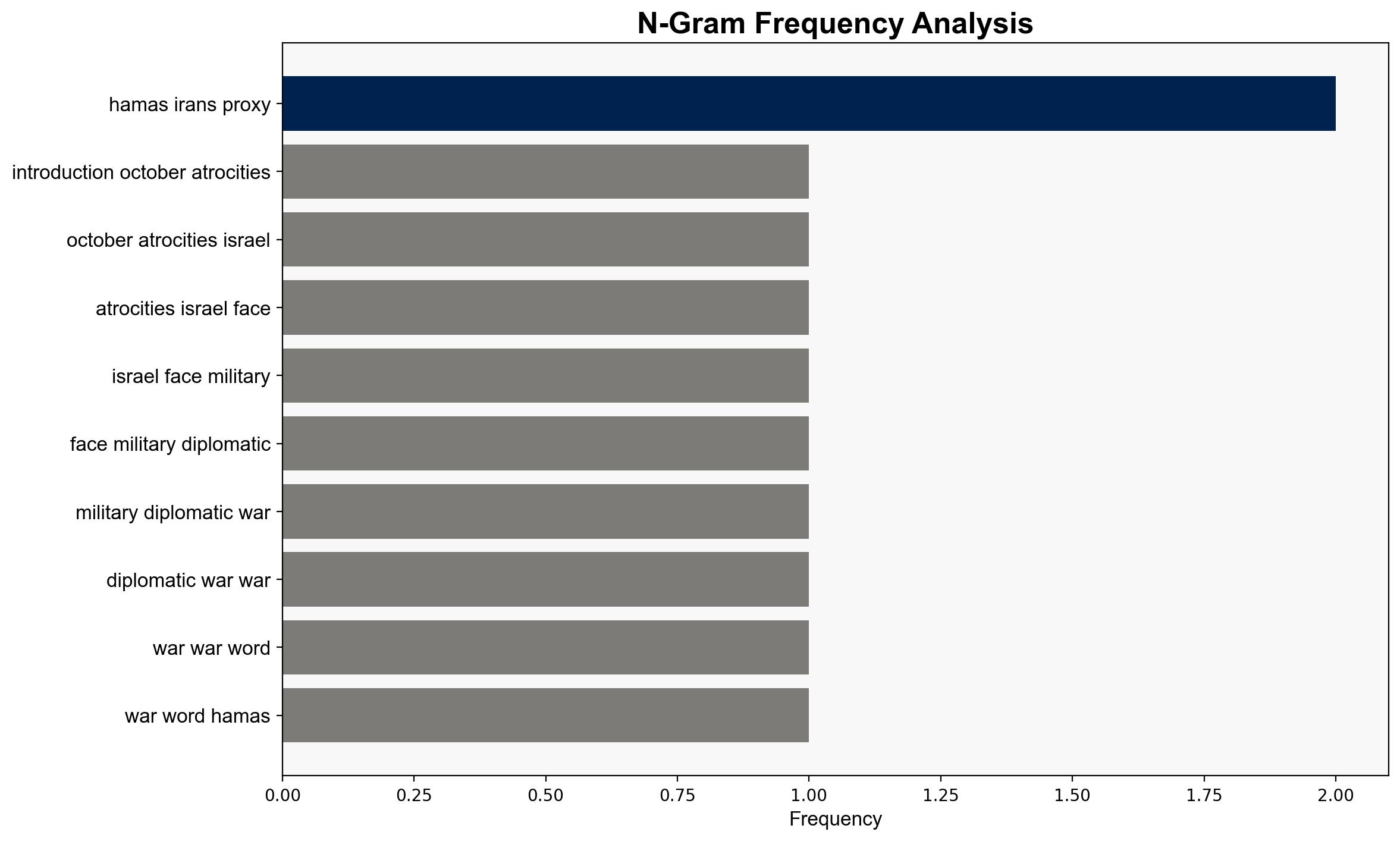The Language War How Hamas and Irans proxies deceive the West – Israelnationalnews.com
Published on: 2025-10-19
Intelligence Report: The Language War How Hamas and Irans proxies deceive the West – Israelnationalnews.com
1. BLUF (Bottom Line Up Front)
The strategic judgment indicates that Hamas and Iran’s proxies are engaged in a coordinated linguistic and psychological campaign to manipulate Western perceptions, aiming to delegitimize Israel and gain strategic advantages. The hypothesis that this is a deliberate and coordinated effort is better supported. Confidence level: High. Recommended action: Enhance counter-narrative strategies and increase awareness of linguistic manipulation in diplomatic and media circles.
2. Competing Hypotheses
1. **Hypothesis A**: Hamas and Iran’s proxies are deliberately using language as a strategic tool to manipulate Western perceptions, aiming to delegitimize Israel and gain international sympathy.
2. **Hypothesis B**: The linguistic framing by Hamas and Iran’s proxies is not a coordinated strategy but rather a result of cultural and ideological differences that inadvertently resonate with Western audiences.
Using Analysis of Competing Hypotheses (ACH), Hypothesis A is better supported due to the consistent use of specific terms that align with strategic objectives, such as reframing aggression as resistance and occupation. The deliberate choice of words that evoke historical Western narratives suggests intentionality.
3. Key Assumptions and Red Flags
– **Assumptions**: Hypothesis A assumes a high level of coordination and understanding of Western cultural narratives by Hamas and Iran’s proxies. Hypothesis B assumes that cultural differences naturally lead to these linguistic overlaps without strategic intent.
– **Red Flags**: The lack of direct evidence of coordination could indicate a potential overestimation of strategic intent. Additionally, the reliance on Western interpretations without considering local perspectives may skew analysis.
4. Implications and Strategic Risks
The linguistic manipulation could lead to increased diplomatic isolation for Israel and embolden Hamas and Iran’s proxies by gaining Western sympathy. This may escalate into broader geopolitical tensions, affecting regional stability and potentially influencing Western policy decisions. The psychological impact of these narratives could also undermine counter-terrorism efforts by framing them as oppressive.
5. Recommendations and Outlook
- Develop and disseminate counter-narratives that expose linguistic manipulation and clarify the strategic intentions behind these terms.
- Engage with Western media and academic institutions to raise awareness of these tactics and encourage critical analysis of language used in reporting.
- Scenario Projections:
- Best Case: Increased awareness leads to more balanced media coverage and diplomatic support for Israel.
- Worst Case: Continued manipulation results in significant policy shifts against Israel, increasing regional tensions.
- Most Likely: Gradual recognition of linguistic tactics leads to a more nuanced understanding in Western policy circles.
6. Key Individuals and Entities
– Hamas
– Iran’s proxies, including Hezbollah and Houthis
– Western media and academic institutions
7. Thematic Tags
national security threats, cybersecurity, counter-terrorism, regional focus




